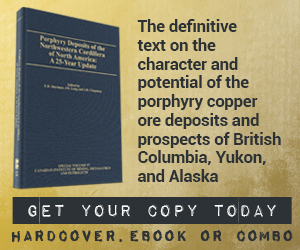Library Magazine Articles Debunking Myths About QP Independence
Debunking Myths About QP Independence
James Whyte and Chris Collins - Jun 2025
Independence—what it is, when you need it, and how to assess it—is probably one of the worst diggers of traps in National Instrument 43-101. A straw man sits across from us again, full of questions and misconceptions about independence.
All disclosure requires the approval of an independent qualified person (QP).
QP independence is only required for certain technical reports—not for all technical reports, or for other disclosures like news releases, websites or securities filings. A mining company without capable in-house professionals to act as QPs is an accident trying hard to happen.
The fundamental tenet of NI 43-101 is that an official, written sanction from an independent qualified person will ensure the integrity of the study.
The only “fundamental tenet” about QPs is that a QP assumes professional responsibility, and Securities Act liability, for certifying or approving public disclosure. The rule (Section 5.3) requires independence only for authors of technical reports, not for qualified persons approving other disclosure. Originally it required independent authors for:
- Reporting issuers entering the market;
- Long-form prospectuses;
- Bid valuations;
- Maiden reserve or resource estimates; or,
- A 100 per cent change (measured by tonnage) in a resource or reserve estimate.
Companies in production were exempt from independence requirements for resource and reserve disclosure, on twin premises: producers have the internal resources to do adequate reporting, and companies hyping fake mineral deposits do not enter production.
Amendments to NI 43-101 in 2011 relaxed the independence requirements for producing companies filing long-form prospectuses and valuations, and for foreign producing companies entering the Canadian market, as long as their securities traded on an exchange that required disclosure under an acceptable foreign code.
You mean some reports have to be done in-house?
No. Sometimes NI 43-101 requires that companies do independent reports. Otherwise, it lets them do in-house reports. An independent report is always okay.
An independent technical report can have non-independent authors.
No. While independence is not required as often as many people think, when it is required, it is required to be independent front-to-back.
Independent just means you have no financial interest in the company.
No. There is a “reasonable person” test in Section 1.5 of the Instrument:
In this Instrument, a qualified person is independent of an issuer if there is no circumstance that, in the opinion of a reasonable person aware of all relevant facts, could interfere with the Qualified Person’s judgment regarding the preparation of the technical report.
Many factors can compromise independence, not just financial ones; for example, if a report author:
- Expected employment, a board seat or a project management contract;
- Had an interest in intellectual property (like a beneficiation process) that was part of the development plan;
- Had a long previous history working on the property, or had made the company’s internal resource or reserve estimates;
- Worked for a consulting firm that held an interest in the property or in the transaction where the company acquired it;
- Worked for a consulting firm where one of the principals was an officer or director of the company; or,
- Worked for a consulting firm that took shares in the company as payment.
Those are all things we’ve seen.
But what about the eight tests in the Instrument? They don’t say anything like that.
The “test,” clarified in the previous question, is in the Instrument; these “eight tests” you refer to are not tests, but examples given in the corresponding Section 1.5 of the Companion Policy (CP). There, it clearly says the list of examples is not exhaustive. The CP also says—in Section 5.3 (3) —that regulatory staff may question an author’s objectiveness.
Our lawyer says if you own less than one per cent of the company’s shares, you’re independent.
Your lawyer needs to read the reasonable person test in the Instrument, which isn’t settled by how much the QP can move the market, but by whether a reasonable person would think the QP’s judgment was affected by holding securities.
But the CP says if you hold securities in the company, you can still be independent.
Any reasonable person would normally assume an author that holds securities in the company is not independent. But if the value of those securities is a trivial part of the author’s assets, that same reasonable person might not have misgivings. But that “might” is a “maybe”—one you could only determine on a case-by-case basis.
The CP says the issuer needs to determine the QP’s independence.
Actually, what the CP says is “an issuer must always apply the test in Section 1.5 of the Instrument to confirm” independence. That does not mean the company has the last word on independence, but that the company must select its QPs using the reasonable-person criterion, not some other standard.
So, what is the test, after all?
An old colleague of ours, at the British Columbia Securities Commission, might have had the best formula: If you have to ask, you’re probably not independent.
About the Authors
James Whyte, P.Geo., retired in 2023 from his role as senior geologist at the Ontario Securities Commission. Chris Collins, P.Geo., retired in 2022 from his role as chief mining advisor at the British Columbia Securities Commission. Both authors are writing in their private capacity.
- BACK TO LIST
- PREVIOUS ARTICLE
- NEXT ARTICLE

.png)
